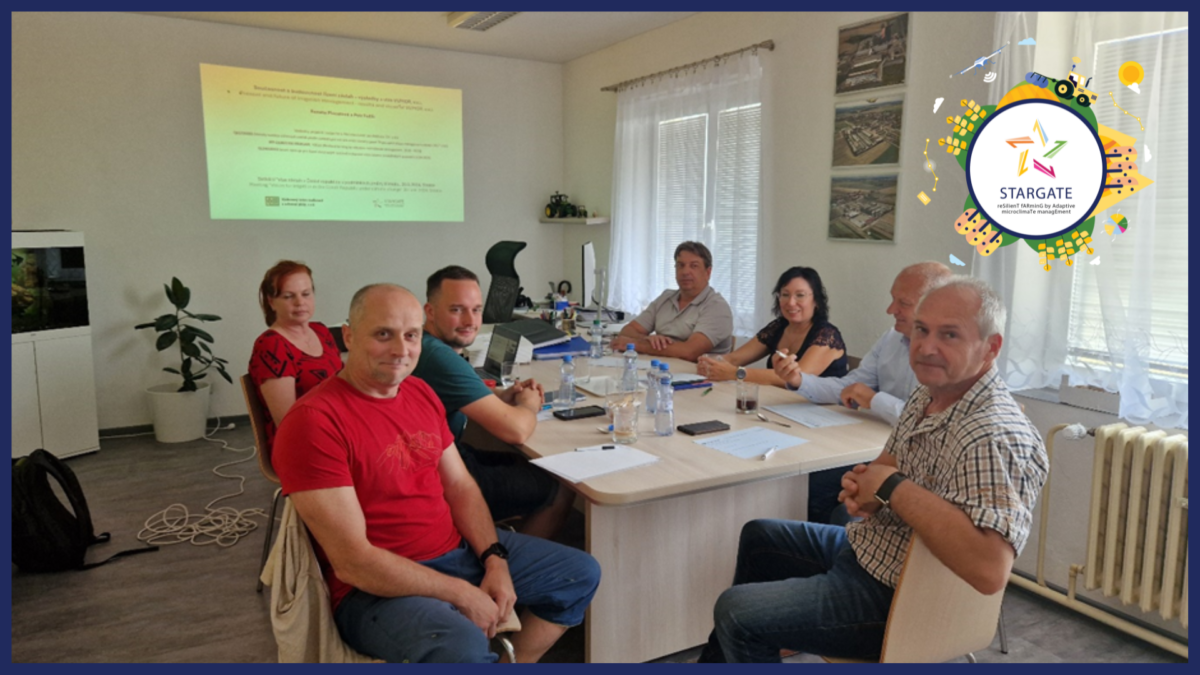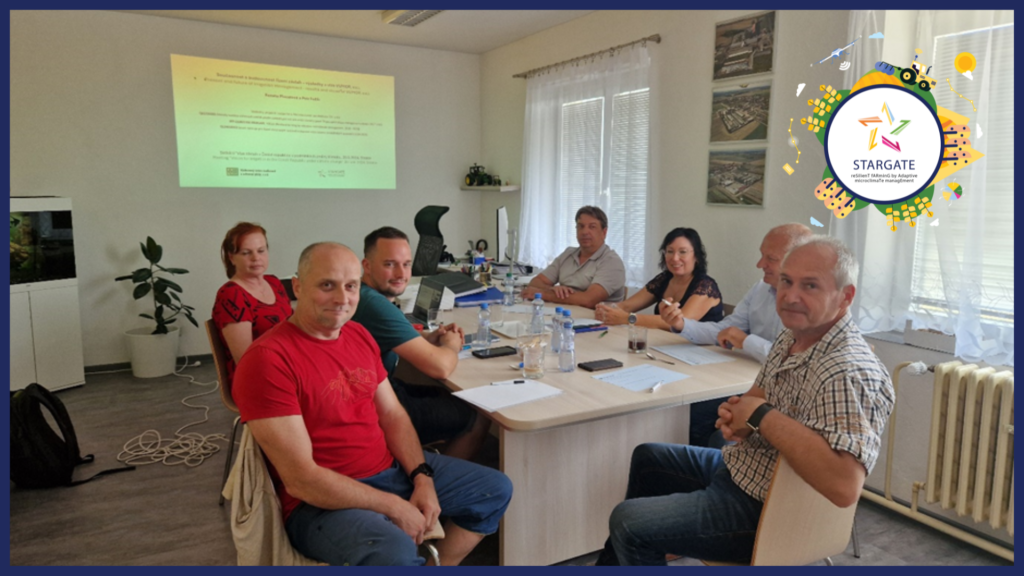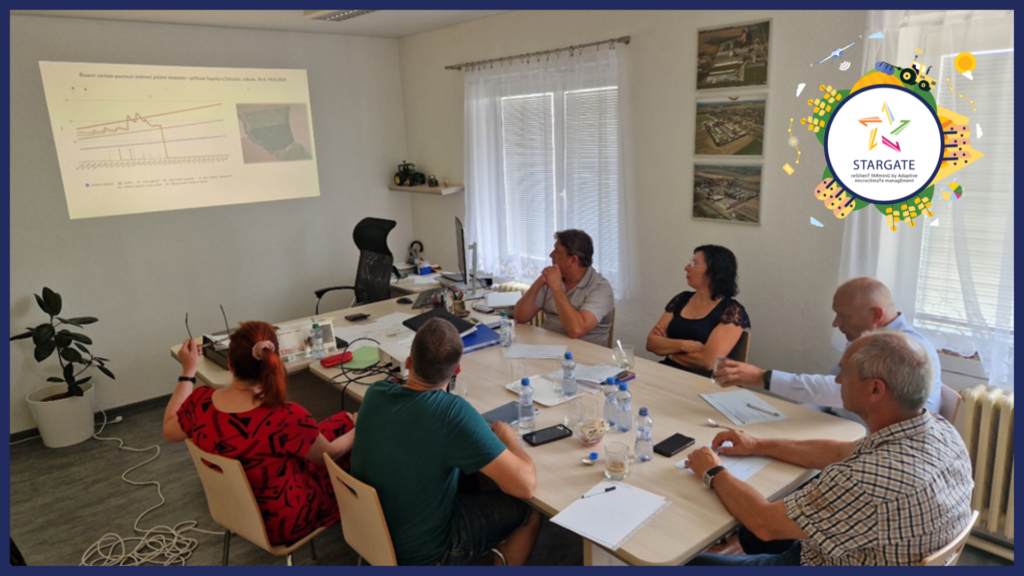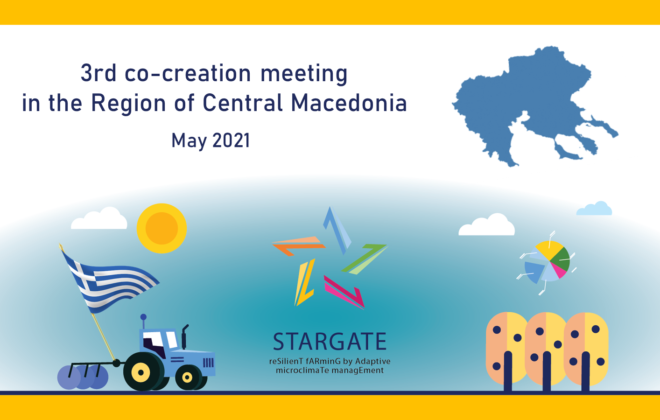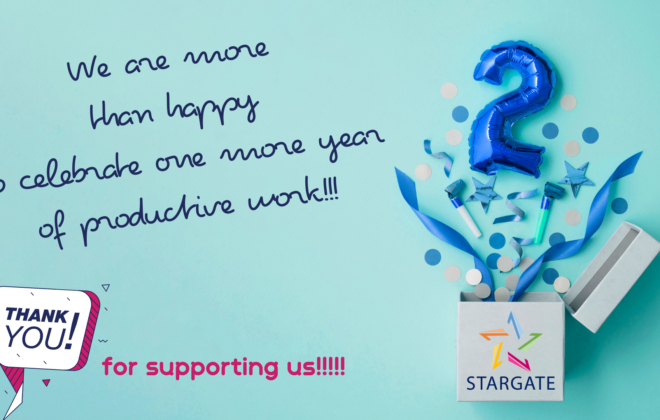Visioning workshop, organised by STARGATE Jizera River pilot
The STARGATE visioning workshop was organised by project Jizera River pilot on 20 June 2024 in Stratov, The Czech Republic, from 14:00 to 16:00.
The main objective of the STARGATE workshop was to identify, in cooperation with stakeholders: (1) the main elements of the future vision and discuss how to get there (roadmap), and (2) the role of different elements in CSA (technology, improved crop and livestock management practices, farming systems) in this transition.
At the beginning of the workshop, a presentation entitled “Present and Future of Irrigation Management” was presented by VUMOP, which triggered a discussion to clearly identify the structure of the vision for irrigation in the Jizera River Pilot and in the Czech Republic as a whole. The vision for ten years was based on the definition and addressing of the challenges that currently exist within the operation of irrigation systems such as: (1) poor technical conditions of some irrigation systems, (2) water losses in pipes, (3) lack of national subsidies (currently stopped), (40 electricity prices (lower at night, but at this time crops cannot be irrigated), (5) lack of water for irrigation in summer and, and (6) the need of a real-time irrigation scheduling, prioritization of field blocks/crops.
During the discussion, participants agreed that a meaningful vision for irrigation in the country should include: (i) stabilization of irrigated areas to supply the market, (ii) reconstruction of irrigation systems with the support of national subsidies, (iii) irrigation management according to local crop water requirements (using soil moisture sensors and remote sensing tools), (iv) use of daytime periods with low electricity prices, and (v) construction of irrigation water tanks or larger ponds to collect water when irrigation is not needed (winter, spring, periods of high rainfall), prevent high loses from free water by evaporation.
The goal is to make efficient use of existing irrigation water sources (i.e. mainly surface water), which involves: (i) minimising water losses (leakages from pipes), (ii) storing water when irrigation is not actual (accumulation water tanks, pools), (iii) the possibility of irrigation according to crop water requirements and the onset / forecasting of crop water stress, (iv) taking the advantage of periods of low electricity prices.
STARGATE tools fully fulfil and support the management vision in 10 years for the Jizera River pilot.
Field experiments within the Jizera River pilot have contributed significantly to the development of controlled irrigation methodologies. Irrigation management using soil moisture sensors and derivation of irrigation rates using soil hydrolimits were successfully tested at field scale. It has showed the approach how the irrigation doses could be applied more precisely, optimising the water timing and irrigation doses to different crops. Further, it has opened and suggested a way for a broader application of these methods at larger scale. A GIS tool based on real-time data (ground and remote sensing – Landsat and Sentinel2 satellite imagery) was proposed that could determine crop water requirements and, in combination with weather forecasts, the real-time applicable irrigation rates.

